Is there life elsewhere? Part 4. What are the theological implications of extra-terrestrial life?21/6/2021 Graham and John write ... 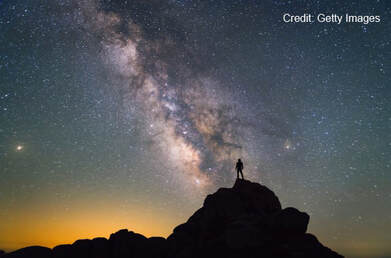 As Graham discussed in Part 2 of this series of posts, astronomers have discovered thousands of planets orbiting other stars; indeed, the number of new discoveries of exoplanets, as they are called, continues to grow on a daily basis. Many of these are located in the habitable zone of their sun, which spurs inevitable speculation about whether intelligent alien life resides there. However, this does not just depend upon the number of suitable planets but also upon the likelihood that life will occur given suitable conditions. The latter question was addressed by John in Part 3: abiogenesis on Earth looks to be extremely unlikely and remains a mystery but life has originated on our planet. Indeed, it has given rise to beings such as ourselves, capable of contemplating such things. Coming at the problem from two different directions, it is fair to say that we came to same conclusion – clearly there is currently insufficient data to say whether we are alone in the Universe or whether the Universe is teeming with life. 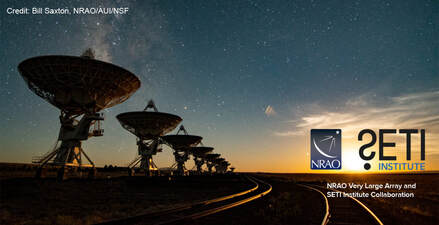 As we mull over these issues, our opinions about the abundance or otherwise of life elsewhere change, almost from day to day. At this moment for example, Graham is of a mind that intelligent life is only sparsely distributed throughout the Universe, because of the improbability of abiogenesis. But are we missing something here? John reminds us that there is evidence to suggest that on planet Earth life arose about 4 billion years ago, as soon as conditions became physically suitable. What life there was also survived the bombardment era, when the planet was repeatedly struck by large debris left-over from the birth of the Solar System. Perhaps abiogenesis is not as improbable as first appears. So, we might ask, as Paul Davies did in his splendid book The 5th Miracle (1), if the laws of nature are somehow bio-friendly. In other words, are they rigged in favour of life? Currently, there is no indication that this is so, or if it is, how it would work. So, what issues are posed for the world’s religions, and for Christianity in particular, if intelligent extra-terrestrial (ET) life does exist? This has been discussed in some detail by our friends at BioLogos in an online article by Deb Haarsma: ‘What would life beyond Earth mean for Christians?’. This includes a 90-minute video of presentations from the 2019 BioLogos Conference, featuring Deb Haarsma (theology), Jennifer Wiseman (astronomy) and Stephen Freeland (life sciences), which is well worth the time if you are really into this topic. It is difficult to add insight to the BioLogos article in this brief blog post, but at least we can express opinions and comment on the issues in general. 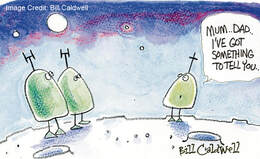 It is inevitable that many atheists will assert that the discovery of ET intelligent civilisations would put an end to religion and undermine Scripture. Others claim that since the Bible does not mention life elsewhere, it has nothing to say about the discovery of aliens. But then, as the BioLogos article points out, the Bible does not mention life in Australia either! Indeed, the article points to a survey of people who have a religious faith, which found that, actually, most are happy with the idea of life elsewhere and do not see it as a threat to their beliefs. However, a counter-view is expressed by Robert Lawrence Kuhn in a YouTube video, Would intelligent aliens undermine God?. He suggests that ET life poses challenges to Christian theology, but less so for Eastern religions. Among the many aspects discussed by Haarsma and her co-presenters, are on the one hand the universality of God’s created order, and on the other what might be called ‘parochial concerns’, those linked to planet Earth, especially related to the assumed uniqueness of humanity. The Christian Bible is truly universal in scope. It speaks not only of the Earth but of the entire Universe. God’s creation is unbounded and includes all worlds, and whatever forms of life that resides upon them.  However, it is the Earth-bound aspects that are of primary concern. Two thousand years ago Jesus Christ lived among us and experienced human existence ‘first-hand’. The incarnation is central to our Christian faith. The obvious question posed by Haarsma is that if God created intelligent beings on other planets, would Christ have been incarnate in those species too? Or is the incarnation unique to Earth? In other words, is the Bible just the ‘local branch book’? It is a question that has been explored by many authors. In his space trilogy, C. S. Lewis discussed the possibility of intelligent beings who developed a moral code and asked about their relationship with a creator-God. In the Narnia chronicles, Christ is incarnate as a lion, Aslan. The idea here is that God becomes incarnate amongst the created beings in an appropriate form. If that is so and if indeed the Universe is ‘teeming with life’, then is it reasonable to suppose that Christ became incarnate to other civilisations (assuming that abiogenesis can always lead to intelligent life and then to ‘civilisations’) throughout the Universe? For many (but not all) theologians, including C. S. Lewis, the answer is ‘Yes’ (2), while amongst scientists, Christian physicist Russell Stannard says, 'I can't see why the same Son of God, who has existed for all time, can't take on the form of other creatures once they reach the stage where they can communicate with God’ (3). But actually we have to remain agnostic on this topic, albeit with an inclination to agree with C. S. Lewis and Russell Stannard. We have no idea what intelligent ET beings would look like. We have no concept of how their spirituality would be manifest, assuming that they are spiritual beings, or of how they might relate to God. We can only say ‘God knows’, with no hint or intention of irony. God reminds us of this in the book of Isaiah, when he declares – “ … For my thoughts are not your thoughts, neither are your ways my ways. … As the heavens are higher than the earth, so are my ways higher than your ways and my thoughts than your thoughts.” (4). 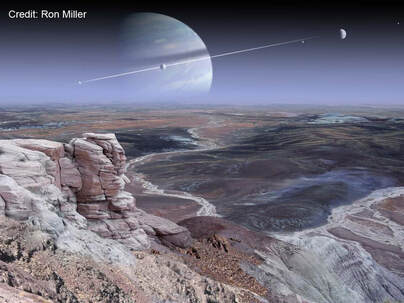 One memory for Graham which underlined God’s ‘otherness’ concerned a late evening flight many years ago when he was returning to Southampton from Amsterdam. The flight path skirted the southern part of the conurbation of London, and it was a beautiful clear night. The whole of London stretched out beneath him like a huge, glowing living organism. While taking in this awesome sight, a curious thought suddenly flashed into his head. Just in that one city, at that moment, there was probably several hundred thousand of prayers rising to God. As a Christian who believes in the power and efficacy of prayer, it brought into sharp focus Graham’s complete lack of understanding of God’s omnipotence. The memory spurred him to suspect that, if there is a need to redeem a fallen alien civilisation (presumably, not all of them would be in need of this?), then God would find a way to show his redemptive love. Finally, it has to be said that there are many scientific and theological questions that remain unanswered (some of which are probably unanswerable) and as a consequence there is currently insufficient knowledge and evidence to determine the existence, or otherwise, of life elsewhere. While it is interesting to ponder these questions, it is also important to worship and serve God here on this planet. In the light of current issues, we need to remember that for us Earthlings, ‘there is no Planet-B’ and that God has asked us to look after this one, ‘Planet-A’, our beautiful Earth. Graham Swinerd Southampton John Bryant Topsham, Devon June 2021
0 Comments
|
AuthorsJohn Bryant and Graham Swinerd comment on biology, physics and faith. Archives
July 2024
Categories |
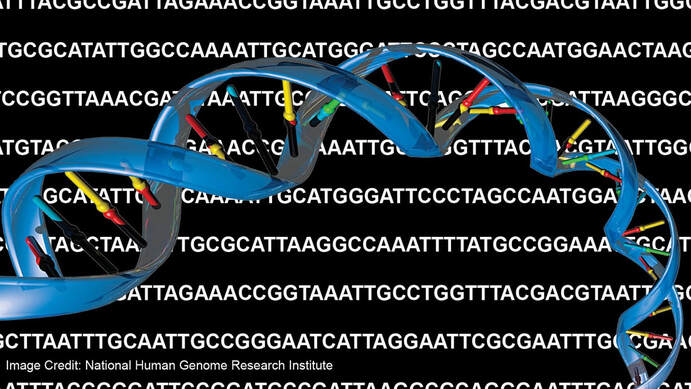
 RSS Feed
RSS Feed
